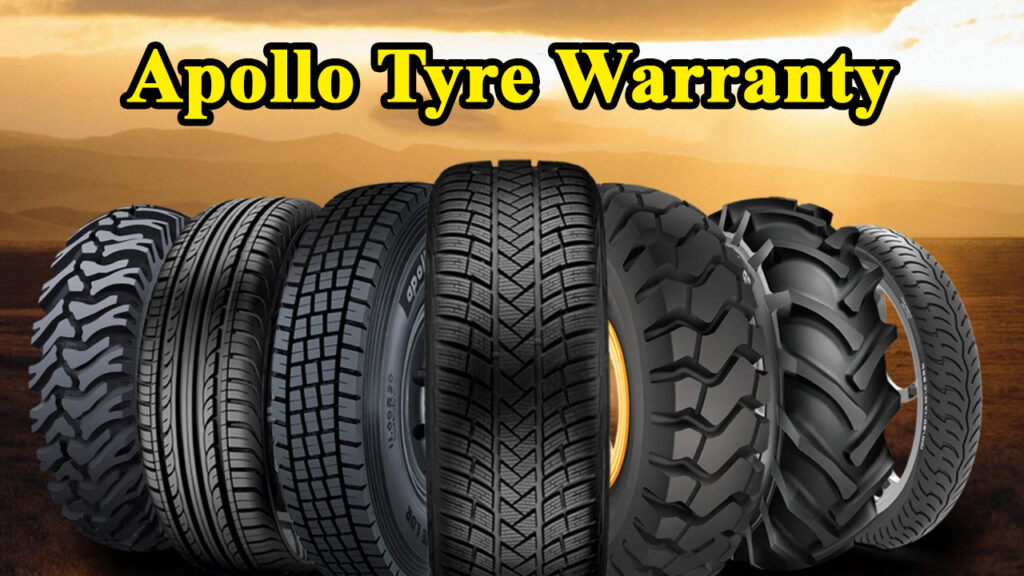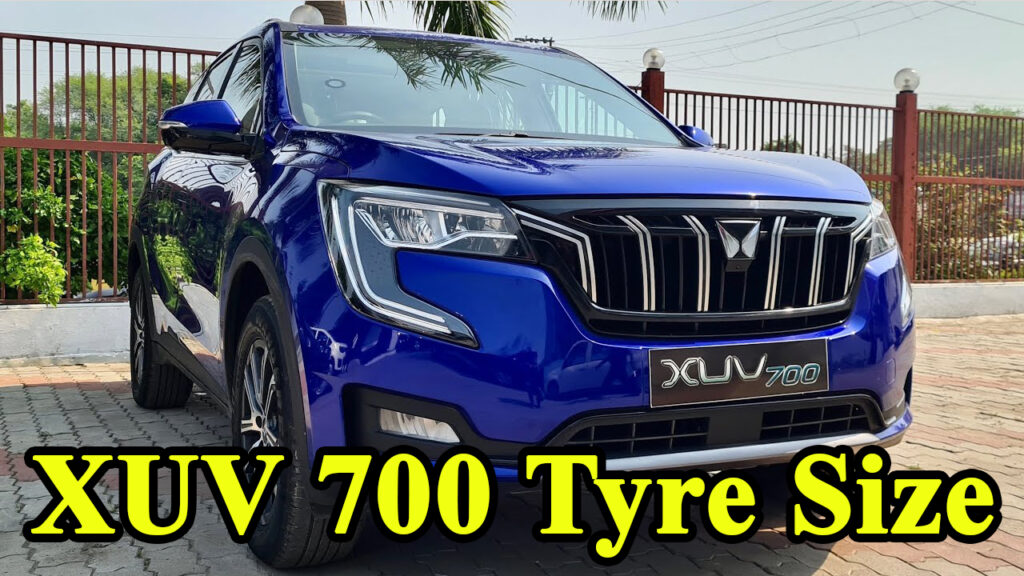As someone who’s spent years on Indian roads, from the bustling streets of Mumbai to the serene highways connecting diverse landscapes, I understand the paramount importance of reliable tyres. They’re not just rubber circles; they’re your primary connection to the road, ensuring safety, performance, and peace of mind. And when it comes to peace of mind, a solid warranty can make all the difference.
That’s where Apollo Tyres, a brand that has truly made its mark across our nation, comes into play. You see their tyres everywhere – on my neighbour’s SUV, the taxi I hail in Pune, even on heavy-duty trucks traversing the challenging Western Ghats. This ubiquity isn’t just about market presence; it’s about trust. And a significant pillar of that trust is their warranty policy. But what exactly does it entail? Let’s peel back the layers and understand Apollo’s tyre warranty, ensuring you’re well-equipped for every journey.
Why a Tyre Warranty Matters: More Than Just a Safety Net
Before we dive into the specifics of Apollo’s offerings, let’s understand why a tyre warranty is so crucial. Think of it as an investment safeguard. Tyres are a significant expense, and unexpected damage can hit your wallet hard. A good warranty cushions that blow, protecting you against manufacturing defects and, in some cases, even road hazards.
From my own experience, I remember a harrowing incident near Nashik where a sharp piece of metal on the highway instantly punctured my relatively new tyre. Had it not been for a comprehensive warranty (or a good road hazard policy, which is a different beast but related!), that unexpected expense would have soured my entire trip. It’s in these moments that you truly appreciate the value of such a policy.
Apollo Tyres: Laying Down the Foundation of Trust
Apollo Tyres, a home-grown Indian multinational, has built its reputation on producing robust and performance-oriented tyres for various vehicle segments. Their commitment to quality is often backed by a multi-faceted warranty structure, designed to give consumers confidence in their purchase. Generally, Apollo offers two primary types of warranty for passenger vehicle tyres in India:
- Standard Manufacturing Defect Warranty: This is the bedrock, covering issues arising from the manufacturing process.
- Unconditional Warranty / Peace of Mind Plan: This is an added layer of protection, particularly for select patterns, that extends coverage to certain road hazards.
Let’s break them down.
1. The Standard Manufacturing Defect Warranty: What’s Covered?
This is the fundamental assurance you get with almost any new Apollo tyre. It guarantees that the tyre is free from defects in material or workmanship.
What it generally covers:
- Bubbles or bulges on the sidewall or tread: Often indicative of structural integrity issues during manufacturing.
- Ply separation: Where the internal layers of the tyre begin to delaminate.
- Tread separation: The tread detaching from the tyre casing.
- Rapid, irregular wear due to manufacturing defects: It’s crucial to note the caveat here – uneven wear due to vehicle misalignment or improper inflation is not covered.
Typical Warranty Period:
For most passenger and SUV tyres, Apollo’s standard manufacturing defect warranty is usually 5 years from the date of manufacture or till the tyre tread wears down to the Tread Wear Indicators (TWI) (typically 1.6mm remaining tread depth), whichever comes first. This period is a standard across many tyre manufacturers in India, such as MRF, Bridgestone, and CEAT, who also offer 5-year or TWI-based warranties.
Kawasaki Versys X-300 Tyres Price: Your Ultimate Price & Performance Guide (India)
Important Value & Originality Point: While the 5-year timeframe is common, the “whichever comes first” clause is critical. Most drivers will hit the TWI limit long before five years if they’re driving regularly. The manufacturing date on the tyre (often a four-digit DOT code indicating week and year, e.g., ‘1525’ means 15th week of 2025) is the starting point for this warranty, not necessarily your purchase date. Always check this when buying!
2. The Unconditional Warranty / Peace of Mind Plan: Your Shield Against Road Hazards
This is where Apollo often stands out, offering an extra layer of protection that many consumers value. While not applicable to all tyre patterns, the “Unconditional Warranty” or “Peace of Mind Plan” is designed to cover damages that are not manufacturing defects but occur due to common road perils.
What it generally covers (on select patterns like Amazer 4G Life, Alnac 4G, Aspire 4G):
- Irreparable punctures: Those frustrating nails or sharp objects that make a tyre unrepairable.
- Cuts from foreign objects: Glass, sharp stones, or metal shards that slash your tyre.
- Impact damage: Damage caused by hitting potholes, kerbs, or other road debris.
Typical Warranty Period for Unconditional Warranty:
This plan often offers coverage for a specific period, typically 2 years from the date of purchase, or until 50% tread wear (whichever is earlier). This is a pro-rata warranty, meaning you pay for the tread you’ve already used.
Personal Touch & Example: I once had a friend who bought Apollo Alnac 4G tyres for his Maruti Swift. He was meticulous about maintenance, but fate had other plans. Driving through a poorly maintained patch of road after heavy rains in rural Maharashtra, he hit a submerged pothole with a sharp edge. The sidewall of his tyre was irrecoverably damaged. Thanks to the Unconditional Warranty on his Alnac 4G, he only had to pay a pro-rata amount for a new tyre, based on the remaining tread. It saved him a significant chunk of money and, more importantly, a lot of stress. This personal experience highlights the real “value” of such a plan.
Important Value & Originality Point: The “pro-rata” basis is key here. It means if your tyre had, say, 8mm of tread when new and it’s damaged with 4mm remaining (50% used), you’d typically pay 50% of the cost of a new tyre. The more tread remaining, the less you pay. It’s a fair system that accounts for the life consumed.
What’s NOT Covered: Understanding the Exclusions
Just as important as knowing what’s covered is understanding the exclusions. These are common across almost all tyre manufacturers and are designed to differentiate between a product defect and damage caused by external factors or improper usage.
Common Exclusions (across both warranty types, unless specifically covered by an Unconditional Warranty):
- Improper Usage:
- Under/Over-inflation: Incorrect tyre pressure is a leading cause of premature wear and damage. Always follow your vehicle’s recommended pressures.
- Overloading: Carrying loads beyond the tyre’s or vehicle’s specified capacity.
- Excessive speed: Driving beyond the tyre’s speed rating.
- Racing or off-roading: Using tyres in extreme conditions not intended for normal road use.
- Road Hazards (unless Unconditional Warranty applies): Punctures, cuts, impact breaks from potholes, sharp objects, etc.
- Mechanical Irregularities of the Vehicle:
- Improper wheel alignment or balancing: Leads to uneven and rapid tyre wear.
- Defective suspension or braking systems: Can cause abnormal tyre wear patterns.
- Improper Mounting/Demounting or Repairs: Damage incurred during fitting or repairs by unauthorized personnel.
- Tyres with altered or removed serial numbers: The tyre’s identity must be verifiable.
- Fire, Vandalism, Accidents, Acts of God: External, unforeseen circumstances.
- Ozone or Weather Cracking: While tyres are designed to withstand weather, severe cracking, especially on very old tyres (typically 4+ years from manufacture, even if unused), might be excluded.
- Tyres Worn Beyond Tread Wear Indicators (TWI): Once the tread reaches 1.6mm (or the TWI is exposed), the tyre has reached the end of its useful life, and warranties cease.
Making a Claim: The Process (and what to expect)
So, you suspect your Apollo tyre has an issue that might be covered by warranty. What next?
Step 1: Contact Your Authorized Apollo Dealer: This is your first and most crucial step. If you purchased the tyre from a specific dealer, start there. If not, find the nearest authorized Apollo Tyres outlet. In a city like Bangalore, for instance, you’ll find numerous Apollo-authorized dealers ready to assist.
KTM RC 200 Tyre Price India: Get the Best Value for Your Ride
Step 2: Present the Tyre and Documents: You’ll need:
- The affected tyre itself.
- Your original purchase invoice.
- Your warranty registration number (if you registered it, which is highly recommended). Some dealers might assist with registration if not done initially.
Step 3: Tyre Inspection: The dealer, often with an Apollo representative, will conduct a thorough physical inspection of the tyre. They’ll examine the nature of the damage, remaining tread depth, and check for any signs of the exclusions mentioned above. Their assessment is critical here.
Step 4: Claim Settlement (Pro-Rata Basis): If the claim is approved, Apollo typically offers a pro-rata replacement. This means you’ll receive credit for the unused portion of the tyre’s life, and you’ll pay the difference for a new comparable Apollo tyre.
Important Note: The fitting and balancing charges for the new tyre are usually borne by the customer.
Case Study: The Pune Pothole Predicament Consider Mr. Sharma from Pune. He had just bought a set of Apollo Apterra tyres for his SUV. A month later, driving through a freshly formed pothole on an unlit road, one tyre developed a significant sidewall bulge. He promptly took it to his Apollo dealer in Kothrud. The dealer inspected the tyre, confirmed it wasn’t due to impact with a sharp object (which might fall under the unconditional warranty if he had it), but a manufacturing weakness in the ply. Since it was clearly a manufacturing defect and the tyre was almost new, Apollo replaced it with a minimal pro-rata charge for the very little tread used. Mr. Sharma was relieved, highlighting the importance of proper inspection and adherence to the warranty terms.
Registering Your Apollo Tyre Warranty: A Crucial Step
Many warranty policies, especially the Unconditional Warranty, explicitly state that registration is required within a certain timeframe (e.g., 15-30 days of purchase).
How to Register (General Process):
- Through your dealer: Many authorized Apollo dealers will assist you with the registration process at the time of purchase.
- Apollo Customer Care: You can call Apollo’s dedicated customer care number (e.g., 1800-212-7070 in India) and provide your details, tyre size, serial number, and dealer information. They will then provide you with a warranty registration number.
- Online/App: While not universally available for all warranties, some manufacturers are moving towards online registration portals or dedicated apps. Check Apollo’s official India website for the latest options.
Why Register? It streamlines the claim process. Having a registration number makes it easier for Apollo to verify your purchase and tyre details, saving you time and potential headaches during a claim.
Maximizing Your Tyre Life and Warranty Benefits
Beyond understanding the warranty, here are some expert tips to ensure your tyres last longer and that your warranty remains valid:
- Regular Inflation Checks: This is perhaps the most critical factor. Check your tyre pressure weekly, preferably when the tyres are cold. Correct pressure ensures even wear and optimal performance.
- Periodic Tyre Rotation: Rotate your tyres every 5,000-10,000 km as recommended by your vehicle manufacturer. This helps distribute wear evenly across all four tyres.
- Wheel Alignment and Balancing: Get your wheels aligned and balanced periodically, especially after hitting a significant pothole or if you notice uneven wear patterns or vibrations.
- Visual Inspections: Make it a habit to visually inspect your tyres regularly for any cuts, bulges, embedded objects, or abnormal wear. Early detection can prevent major issues.
- Choose the Right Tyre: Ensure the tyres you purchase match your vehicle’s specifications (size, load index, speed rating).
- Adhere to Load Limits: Never overload your vehicle.
- Drive Responsibly: Avoid sudden braking, rapid acceleration, and hitting potholes at high speeds.
Conclusion: Your Assurance on Every Kilometre
Understanding Apollo Tyre’s warranty isn’t just about reading fine print; it’s about empowering yourself as a consumer. It’s about making an informed decision that adds a layer of security to your vehicle and your journeys. While no warranty covers every conceivable scenario, Apollo’s multi-tiered approach, particularly with its Unconditional Warranty on select products, demonstrates a significant commitment to customer satisfaction in a challenging road environment like India.
Suzuki e-Access Tyre Price in India: An In-Depth Buyer’s Guide
From my years of experience, I can tell you that a well-maintained tyre, backed by a clear and accessible warranty, is an unbeatable combination for any road trip. So, the next time you’re considering new tyres, look beyond just the sticker price. Dive into the warranty details, ask questions, and understand the real value it offers. Because ultimately, your peace of mind on the road is priceless.
Frequently Asked Questions (FAQs) about Apollo Tyre Warranty
Q1: How long is the typical warranty period for Apollo car tyres in India? A1: Apollo Tyres generally offers a standard manufacturing defect warranty of 5 years from the date of manufacture or until the tyre tread wears down to the Tread Wear Indicators (TWI), whichever occurs first. Additionally, certain premium patterns may come with an “Unconditional Warranty” for a shorter period, often 2 years or up to 50% tread wear, covering specific road hazards on a pro-rata basis.
Q2: What is the difference between a “Manufacturing Defect Warranty” and an “Unconditional Warranty” from Apollo? A2: The Manufacturing Defect Warranty covers issues arising solely from the tyre’s production process (e.g., ply separation, bulges due to structural defects). The Unconditional Warranty (also known as “Peace of Mind Plan” for some patterns) is an additional benefit that covers specific external damages like irreparable punctures, cuts, or impact damage from road hazards, which are generally not covered by a manufacturing defect warranty. The Unconditional Warranty is typically pro-rata.
Q3: Is the Unconditional Warranty available on all Apollo tyre models? A3: No, the Unconditional Warranty is usually offered on select Apollo tyre patterns, such as the Amazer 4G Life, Alnac 4G, and Aspire 4G. Always confirm with your dealer at the time of purchase whether the specific tyre model you are buying is covered under this plan.
Q4: How do I register my Apollo tyre for warranty? A4: You can typically register your Apollo tyre warranty in a few ways: * Through your authorized dealer: Many dealers assist with registration at the point of sale. * Apollo Customer Care: Call their toll-free number (e.g., 1800-212-7070 in India) and provide the necessary details. * Check Apollo’s official India website for any online registration portals or apps.
Q5: What documents do I need to make a warranty claim? A5: You will generally need the affected tyre, your original purchase invoice, and your warranty registration number (if applicable).
Q6: What does “pro-rata replacement” mean in a tyre warranty? A6: Pro-rata replacement means that if your tyre is deemed eligible for replacement under warranty, you will pay a portion of the cost of the new tyre based on the amount of tread that has already been used on the damaged tyre. For example, if your tyre is 50% worn, you would typically pay 50% of the cost of a new tyre.
Q7: Will my Apollo tyre warranty be void if I don’t maintain proper tyre pressure or alignment? A7: Yes. Most tyre warranties have exclusions for damage caused by improper maintenance, including incorrect inflation pressure, lack of regular rotation, or issues arising from vehicle mechanical irregularities like misaligned wheels. Regular maintenance is crucial to keep your warranty valid.
Q8: Can I claim warranty if I have purchased Apollo tyres from an unauthorized dealer or online? A8: Apollo typically specifies that the warranty is valid only if the tyres are purchased from an authorized Apollo Tyres dealer. Purchasing from unauthorized sources or parallel imports may void your warranty. Always ensure you buy from a reputable source.
Q9: What happens if my warranty claim is rejected? A9: If your claim is rejected, the Apollo dealer or representative should provide a clear reason, citing the specific exclusion from the warranty terms and conditions. If you disagree, you can try to escalate the issue with Apollo’s customer service for a re-evaluation, but the decision of their technical representative is often final.
Q10: Are fitting and balancing charges covered under the Apollo Tyre warranty? A10: No, typically the cost of fitting and balancing the replacement tyre is borne by the customer and is not included in the warranty settlement.




